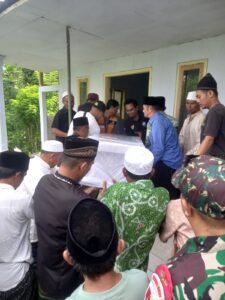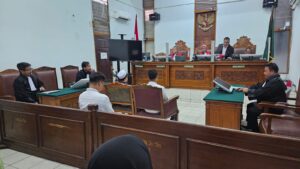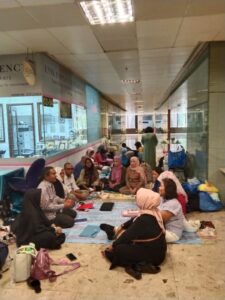REKOMENDASI ASEAN FORUM ON MIGRANT LABOR (AFML) 12
5 min read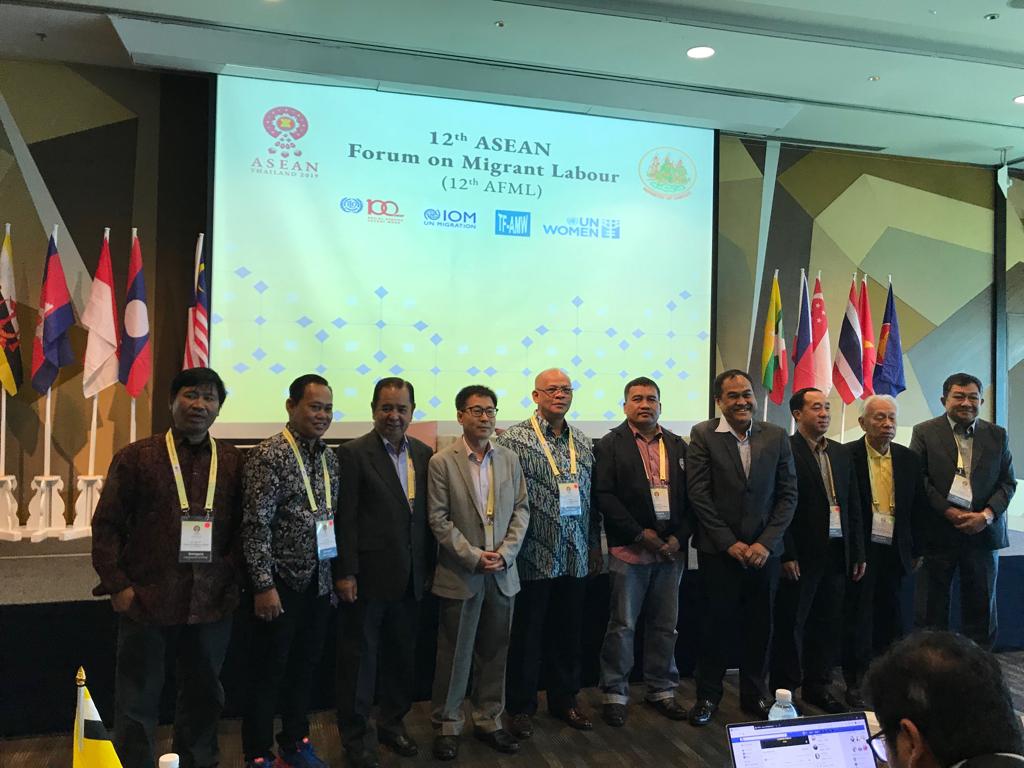
RECOMMENDATIONS
THE 12th ASEAN FORUM ON MIGRANT LABOUR
25-26 September 2019, Bangkok, Thailand
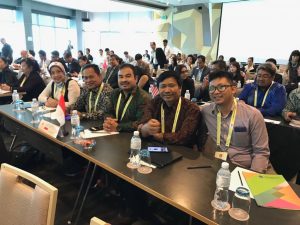 The 12th ASEAN Forum on Migrant Labour which carried the theme “Future of Work and Migration” was held on 25-26 September 2019 in Bangkok, Thailand.
The 12th ASEAN Forum on Migrant Labour which carried the theme “Future of Work and Migration” was held on 25-26 September 2019 in Bangkok, Thailand.
Representatives of the governments, employers’ organisations, workers’
organisations, and civil society organisations from ASEAN Member States, the ASEAN Secretariat, International Labour Organization (ILO), International Organization for Migration (IOM), United Nations Entity for Gender Equality and the Empowerment of Women (UN Women), ASEAN Confederation of Employers (ACE), ASEAN Trade Union Council (ATUC), ASEAN Services Employees Trade Union Council (ASETUC), Task Force for ASEAN Migrant Workers (TFAMW), North South Initiative and Migrant Forum Asia participated in the Forum.
Representatives of Department of Foreign Affairs and Trade
(DFAT) of Australia, Global Affairs Canada, and Swiss Agency for Development and Cooperation participated as observers.
The 12th ASEAN Forum on Migrant Labour was convened as an implementation of the ASEAN Declaration on the Protection and Promotion of the Rights of Migrant Workers, ASEAN Consensus on the Protection and Promotion of the
Rights of Migrant Workers, ASEAN Labour Ministers’ Work Programme 2016-2020, and ASEAN Socio-Cultural Community (ASCC) Blueprint 2025. The Forum is a platform for broad-based discussions on migrant labour issues under the auspices of the ASEAN Committee on the Implementation of the ASEAN Declaration on the Protection and Promotion of the Rights of Migrant Workers (ACMW).
The participants acknowledged that, as highlighted in the ILO Centenary Declaration for the Future of Work, the world of work is changing and will continue to change due to technological innovations, demographic shifts, environmental and climate change, and globalisation. These bring opportunities and challenges to migrant workers who will be affected by the future of work at different levels depending on the occupations.
Migrant workers in some occupations may be at risk of being replaced by automation, while those in occupations in high demand such as care work will not be easily replaced. The participants emphasized the importance of a just transition towards an inclusive, fair, secure and gender-responsive future of work which contributes to sustainable development. In such transition, migrant workers should be protected from all forms of abuse, exploitation and violation against them, and their employability, equality of opportunity, decent working conditions and productivity should be promoted. Furthermore, ASEAN Member States may need to continue studying and enhancing understanding on the changing employment relations in the platform economy, its potential linkage with labour migration, and responsiveness of labour laws.
The participants agreed to recommend the following concrete measures to protect and promote the rights and well-being of migrant workers in the future of work, as inputs to the ACMW in planning its regional actions to implement the ASEAN Consensus in 2021-2025:
A. Protection of Migrant Workers
- Improve pre-departure and post-arrival orientation/training programmes through cooperation of social partners to support integration of migrant workers with the locals, especially on life skills (e.g. financial literacy, language proficiency), national labour laws and regulations of the Receiving States, as well as issues and rights of migrant workers
- Promote the affordability and coverage of social security for migrant workers especially healthcare, occupational injury benefits, invalidity schemes and social pension in line with the ILO Convention 102;
- Promote greater access of migrant workers to social security in line with relevant international agreements such as the principles of the ILO
Convention 118, including through bilateral or multilateral agreements, as necessary, to facilitate portability of social security benefits; - Take measures for safe and fair recruitment of migrant workers, and recruitment fees and related costs are reduced, with the view of eventually not charging to migrant workers;
- Protectthe rights of workers in the supply chain through promotion of corporate social responsibility of private sector which would support sustainability of business and as customers are increasingly becoming more inclined to companies with ethical practices;
- Ensure migrant workers are provided with clear and transparent contracts or proper documentation with terms and conditions of employment in a language they understand based on national legislation and policies, taking references from relevant international labour standards and Convention on the Elimination of All Forms of Discrimination against Women (CEDAW);
- Promote the use of technology to better govern labour migration; facilitate easy access to job opportunities, recruitment, and skills training; and protect the rights of migrant workers;
- Promote transition from informal employment, such as in agriculture, fishery and domestic work, to formal employment to ensure labour rights protection of migrant workers in those sectors;
- Promote migrant workers’ voice and representation in collective bargaining and social dialogue by ensuring their freedom of association;
- Reduce irregular migration by improving access to regular channels of migration and raising awareness of migrant workers on the risks of undocumented migration;
- Promote gender responsive, non-discriminatory policies and practices to ensure women migrant workers’ access to safe and regular migration pathways; remove gender pay gap; and a victim-centred approach to all forms of violence and sexual harassment in the workplace;
B. Employability of Migrant Workers
- 12.Improve and share relevant labour market information to guide migrant workers on relevant skills to acquire and to support evidence-based migration policies and responses, including on development priorities and skills in demand in the receiving states; skill levels of migrant workers in the sending states; job opportunities across labour markets; required travel and work documents; and prevailing laws and procedures; and1
13.Support the employability of migrant workers in the future of work through promotion of:
- Access of migrant workers to skilling, re-skilling and up-skilling opportunities especially on digital skills and soft skills;
- Responsiveness of vocational training programmes to new skills requirement;
- Development of skill standards and classification of jobs such as for domestic work and care work;
- Certification of skills and prior learning by employers and TVET and higher education institutions;
- Skills recognition systems by governments, employers and TVET and higher education institutions to be less cumbersome and more effective;
- Gender equality in employment and trainings including in non-traditional
sectors and occupations; and - Awareness and willingness of migrant workers to enhance their skills.
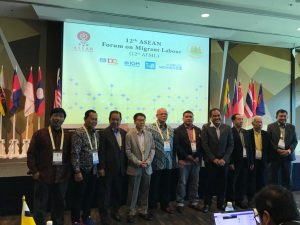 The participants underlined that implementation of these Recommendations and the ASEAN Consensus should be based on the principles of tripartism and involve civil society organisations, migrant workers’ associations as well as other stakeholders.
The participants underlined that implementation of these Recommendations and the ASEAN Consensus should be based on the principles of tripartism and involve civil society organisations, migrant workers’ associations as well as other stakeholders.
The participants extended their appreciation to the Government of Thailand, particularly the Ministry of Labour, for the excellent arrangements of the Forum and warm hospitality accorded to them.
The participants also congratulated the Government of Viet Nam for its role as the incoming ASEAN Chair in 2020 and expressed appreciation of its
confirmation to host the 13th ASEAN Forum on Migrant Labour next year.
